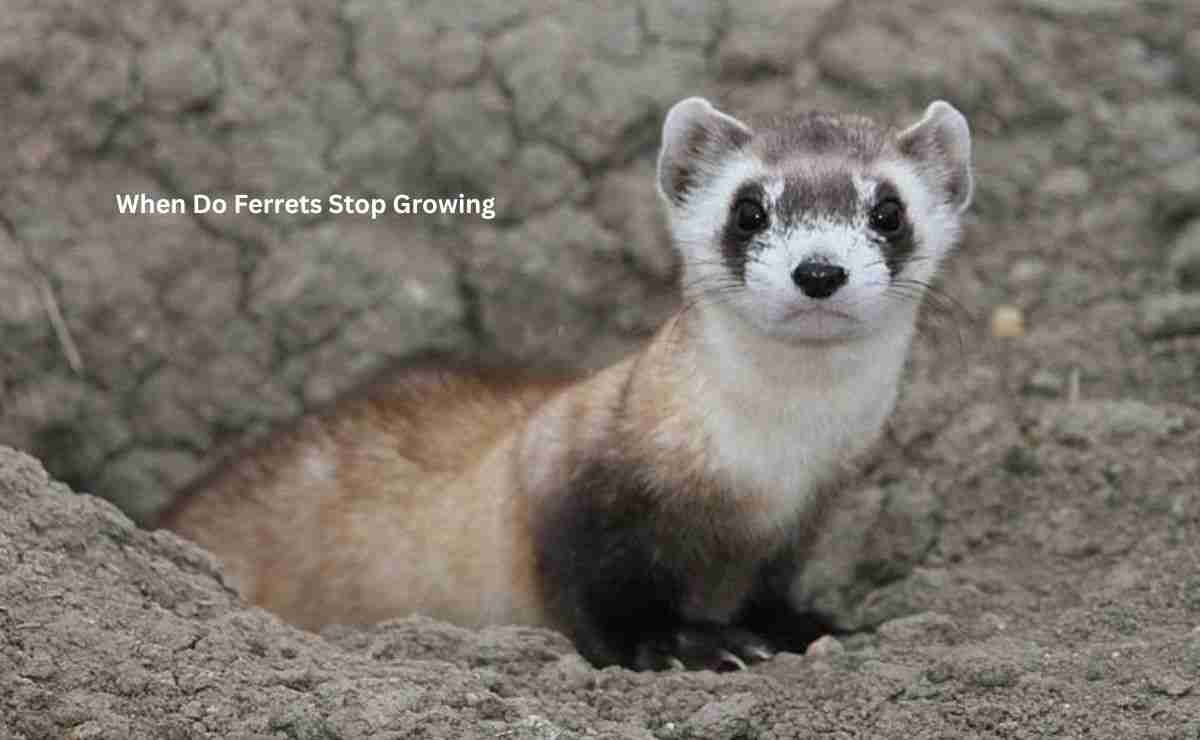Ferrets, also known as domesticated ferrets, are small carnivorous mammals that are commonly kept as pets. They are popular for their playful and curious nature, as well as their affectionate personality.
One of the most common questions that ferret owners have is about their growth patterns. Specifically, many people want to know when do ferrets stop growing.
Ferret growth can vary depending on several factors such as gender, diet, and environment. Understanding the various stages of a ferret’s life can help pet owners provide the best possible care for their furry friends. In this article, we will dive into the topic of ferret growth and explore when these animals reach maturity and stop growing.
When Do Ferrets Stop Growing?

Ferrets reach maturity and stop growing around 1-2 years of age. Generally, male ferrets are larger than females and will grow to be approximately 18 inches in length.
Ferrets reach their full size by the time they are sexually mature at 6-8 months old. After that, they will continue to fill out and become more muscular until they reach their final height and weight at 1-2 years old. It is important to note that ferrets can still gain weight even after they have stopped growing, so it is important to monitor your pet’s diet to ensure they stay at a healthy weight.
Overall, ferrets are considered fully grown adults by the time they are 1-2 years old, but you may notice small changes in their size and appearance throughout their lifetime.
How Long Does A Ferret Generally Become?
Ferrets typically reach full size between 6 and 12 months of age. Adult ferrets can range from 8 to 18 inches in length and weigh anywhere from 1 to 4 pounds. Male ferrets are usually larger than females, with some males weighing up to 5 or 6 pounds.
The life expectancy of a ferret varies depending on its diet and living conditions, but they generally live between 7 and 10 years old. Proper care is essential for keeping your ferret healthy and happy throughout its lifetime. This includes providing a balanced diet, regular veterinary checkups, plenty of exercises, and a clean living environment.
If you adopt an older ferret, it’s important to keep in mind that their health may not be as good as when they were younger. Older ferrets may need more frequent vet visits and may require special diets or medications to stay healthy. Proper care for an older ferret can help them stay active and enjoy a long life with you.
Which Foods Help A Ferret During Its Growth?
When it comes to feeding a ferret during its growth, high-quality, protein-rich food is essential. Look for a diet that contains at least 30% protein and 20% fat from animal sources such as chicken, fish, or eggs. It should also include vitamins, minerals, and other essential nutrients to ensure your ferret gets the nutrition it needs to grow healthy and strong.
Providing your ferret with plenty of fresh water every day is important for its overall health. Be sure to avoid foods that are toxic to ferrets like chocolate, grapes, onions, garlic, nuts, and avocados.
Finally, regular exercise is key for helping your ferret reach its full potential. Give them plenty of playtime outside their cage in a safe environment so they can explore and stay active.
Do Spaying and Neutering Affect Ferret’s Growth?
Yes, spaying and neutering can affect a ferret’s growth. Spaying and neutering are surgical procedures that remove the reproductive organs of male and female animals respectively. These procedures can cause changes in the hormones of the animal, which can affect its growth.
In general, spayed or neutered ferrets tend to be smaller than those that haven’t been altered. This is because they don’t experience as much of a growth spurt during puberty due to the lack of hormones. Additionally, they may have weaker bones and muscles due to lower levels of testosterone or estrogen.
It’s important to note that spaying or neutering your ferret won’t necessarily guarantee a smaller size; some ferrets may still reach their full potential size even after being altered. Ultimately, it’s best to consult with your veterinarian before making any decisions about altering your pet’s reproductive organs.
Last Words
In conclusion, ferrets grow rapidly during their first year of life and reach their full adult size by the age of two.
However, some ferrets may continue to gain weight and muscle mass until they are three or four years old. It is important for ferret owners to monitor their pet’s growth and feeding habits to ensure they maintain a healthy weight and avoid obesity-related health problems.
Regular veterinary check-ups and a nutritious diet can also support optimal growth and development in a young ferret. Ultimately, providing proper care and attention will help your furry friend thrive throughout their lifespan.
